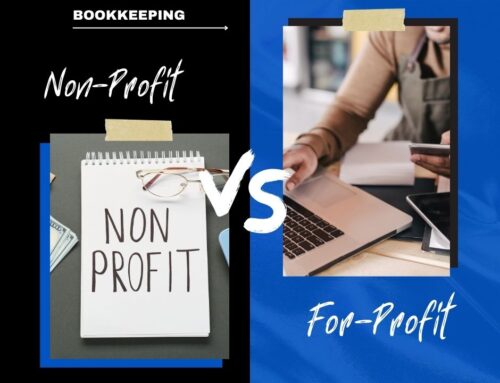 Launching a startup company is exciting. As an owner, you have so many responsibilities and tasks to manage on a daily basis. Sometimes invoicing your clients can become an afterthought.
Launching a startup company is exciting. As an owner, you have so many responsibilities and tasks to manage on a daily basis. Sometimes invoicing your clients can become an afterthought.
However, invoicing is the only way that you’ll get paid. Cash flow is obviously essential for all businesses; but for startups, cash flow can make or break your survival. In fact, 29% of startups fail because they run out of cash.
Entrepreneurs tend to be very innovative, goal-driven, and have a strong business sense. But if you don’t have a background or training in accounting, you might have trouble with invoicing.
I see startup companies make invoicing mistakes all the time.
As an expert in this space, I developed this guide to help you avoid common invoicing blunders, and make sure you know how to properly invoice your customers.
What to Include on Your Invoices
When a client receives an invoice from your startup, there shouldn’t be any questions or confusion. The invoice should look professional and have all the information required for the recipient to pay.
There are certain elements that need to be included on every invoice you send:
- Legal name of your company
- Company address and other contact information (phone, email, fax, etc.)
- Client’s name and address
- Invoice date
- Invoice due date
- Invoice number
- Payment terms
If you forget to include any of this information on your bills, you can run into problems when it’s time to get paid. The last thing you want to do is make your customers pick up the phone and ask questions like, “Where do I mail the check?” or “How do I pay for this?”
Missing information on an invoice reflects poorly on your company. In addition to delayed payments, your clients may think twice before using your business again in the future.
I also recommend adding your company logo to each invoice. Research shows that invoices with logos are three times more likely to get paid.
Download a simple Excel-based Invoice Template
Consider Itemizing Your Invoices
Not every invoice needs to have an itemized description of the charges, but if the bill just includes an amount due, with no other explanation, your clients might hesitate before issuing payment.
It doesn’t matter if you’ve previously discussed the charges with a client in person, through email, or over the phone. Your customers have other things on their minds as well. They may not remember those discussions, and you shouldn’t force them to.
Itemized invoices are transparent and trustworthy.
The level to which you itemize your invoices is up to you, and it may depend on the client and the detail that they require. Some clients may want to see every time entry. Others may be satisfied with breaking out each subcategory of work performed.
It’s best to be clear with your clients, at the beginning of your engagement, what you typically include on your invoices, and make sure that is satisfactory to them. But consider listing each item, service, expense, and anything else that will explain the details of the sum.
Establish a Billing Frequency and Payment Cycle
Just because you send an invoice today, it doesn’t mean you should expect to receive payment tomorrow. It’s important for you and your clients to understand and agree to a reasonable billing and payment cycle.
This might vary based on each client, so you should be prepared to be flexible and accommodate their individual needs.
For example, one client might pay bills every week, while another client might pay bills the first Friday of each month.
Nobody wants to be hounded for money, but that doesn’t mean you shouldn’t be following up with unpaid invoices — even if you feel a little awkward about it. It’s important to always stay professional when you’re doing this. Don’t pick up the phone and say something like, “Hey! Where is my money?”
Your customers probably aren’t intentionally trying to not pay their bills.. Sometimes they just need a friendly reminder. You’ll have much more success sending an email along the lines of, “I’m just following up on the payment status of invoice #123 that was due on XYZ.”
If you can establish a regular invoicing frequency and know the payment cycles of your clients, this confusion can usually be avoided.
Common Invoicing Mistakes to Avoid
As I briefly mentioned earlier, I’ve seen my fair share of invoicing mistakes made by startup companies. Some of these errors are more problematic than others, but I wanted to cover a few mistakes that you need to avoid at all costs.
Forgetting to send an invoice
This might sound obvious, but you’d be surprised how often this happens. If you don’t have a proper invoicing system in place, and you’re doing everything manually or based on memory, it’s very possible that you could forget to send a bill.
Don’t expect your clients to come chasing you down asking for invoices, and they definitely won’t send payment unless you’ve billed them properly.
Invoicing the wrong client
I won’t sugarcoat it — invoicing the wrong client might be the worst mistake you can make. First of all, you don’t want to divulge any sensitive customer information to the wrong person, especially if those two businesses are competing.
Depending on your business and industry, you might charge different rates to each client. Imagine if one of your customers saw someone else’s bill with lower rates than you’re currently charging them. It could be a disaster, and potentially ruin your relationship with at least one, if not two of your clients.
Not seeking professional help
All business owners aren’t necessarily qualified to be bookkeepers for their company. You should look for experts who can help you out with accounting for your startup.
Consider this — If you wanted to build a mobile app for your business, but didn’t have any coding experience, would you try to do it on your own? Probably not. The same analogy can be applied to your startup’s accounting department. If you don’t know what you’re doing, there is no shame in asking for help.
Conclusion
Don’t underestimate the importance of proper invoicing. As a startup company, it’s crucial for you to establish good relationships with your clients and make sure that you get paid on time.
You might want to consider outsourced bookkeeping or CFO outsourcing. Not having the proper help is one of the biggest mistakes I see startups make. By outsourcing your accounting needs, it will give you more time to focus on the other areas of your business that will ultimately help you grow.
Just request a consultation, and we’ll be happy to provide you with the accounting services you need to make your startup a huge success.




